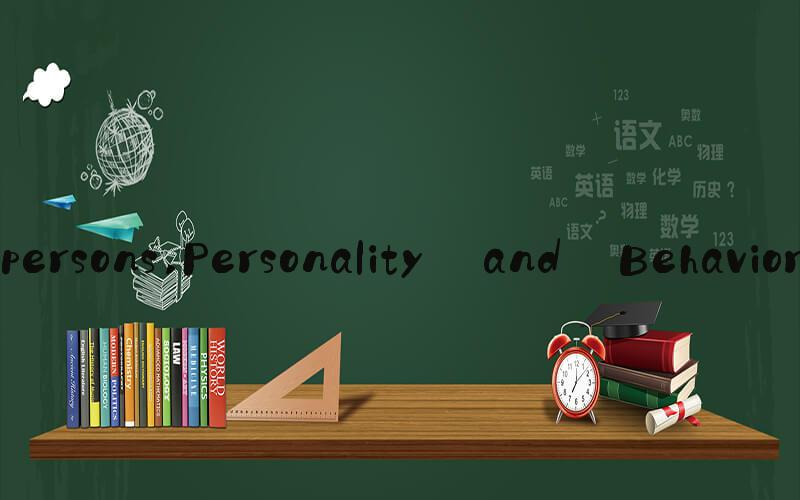 Introduction
IntroductionPersons are the most complex and fascinating beings on the planet. In every person, there is a unique set of traits, experiences, and beliefs that shape their personality and the way they interact with the world. Understanding the complexity of human nature is essential to build positive relationships, foster personal growth, and solve problems.
Personality and BehaviorPersonality is the set of unique characteristics that define a person's thoughts, emotions, and behavior. It influences the way individuals interact with their environment and shapes their preferences, attitudes, and values. Some of the key components of personality include openness to experience, conscientiousness, extraversion, agreeableness, and neuroticism.
Behavior is a manifestation of personality and is often influenced by the social and cultural context. It can vary from person to person and can be affected by factors such as temperament, upbringing, education, and life experiences. Understanding the relationship between personality and behavior is crucial in building healthy relationships, improving communication, and resolving conflicts.
Emotions and Emotional IntelligenceEmotions are an essential element of human behavior and play a significant role in shaping our thoughts, actions, and relationships. Emotions are complex psychological states that involve a combination of physiological responses, cognitive appraisals, and subjective experiences. Some of the common emotions include happiness, sadness, anger, fear, and surprise.
Emotional intelligence is the ability to recognize, understand, and manage one's emotions and the emotions of others. It involves developing skills such as empathy, emotional regulation, and social awareness. Emotional intelligence is critical in building successful personal and professional relationships, managing stress, and making informed decisions.
Cognitive Processes and IntelligenceCognitive processes are the mental activities that help individuals acquire, process, store, and retrieve information. Some of the key cognitive processes include attention, perception, memory, language, problem-solving, and reasoning. Cognitive processes influence the way individuals learn, reason, and make decisions.
Intelligence is a complex and multidimensional construct that refers to the ability to learn, reason, solve problems, and adapt to new situations. Some of the commonly recognized types of intelligence include verbal intelligence, visual-spatial intelligence, logical-mathematical intelligence, emotional intelligence, and social intelligence.
Social Identity and DiversityHumans have a natural tendency to identify with groups that share similar values, beliefs, and experiences. Social identity refers to the collection of characteristics that individuals use to describe their membership in particular social groups. Social identity can be influenced by factors such as gender, race, ethnicity, religion, sexual orientation, and socio-economic status.
Diversity is a natural and essential feature of human society. It refers to the differences in individuals' backgrounds, experiences, and characteristics. Understanding and embracing diversity is crucial in building strong communities, reducing prejudice and discrimination, and achieving social justice.
ConclusionOverall, persons are complex and multifaceted beings that require a holistic approach to understanding. By exploring the various aspects of personality, behavior, emotions, cognitive processes, social identity, and diversity, individuals can gain a deeper insight into human nature. This knowledge can be used to build positive relationships, foster growth and development, and solve problems in various areas of life.
